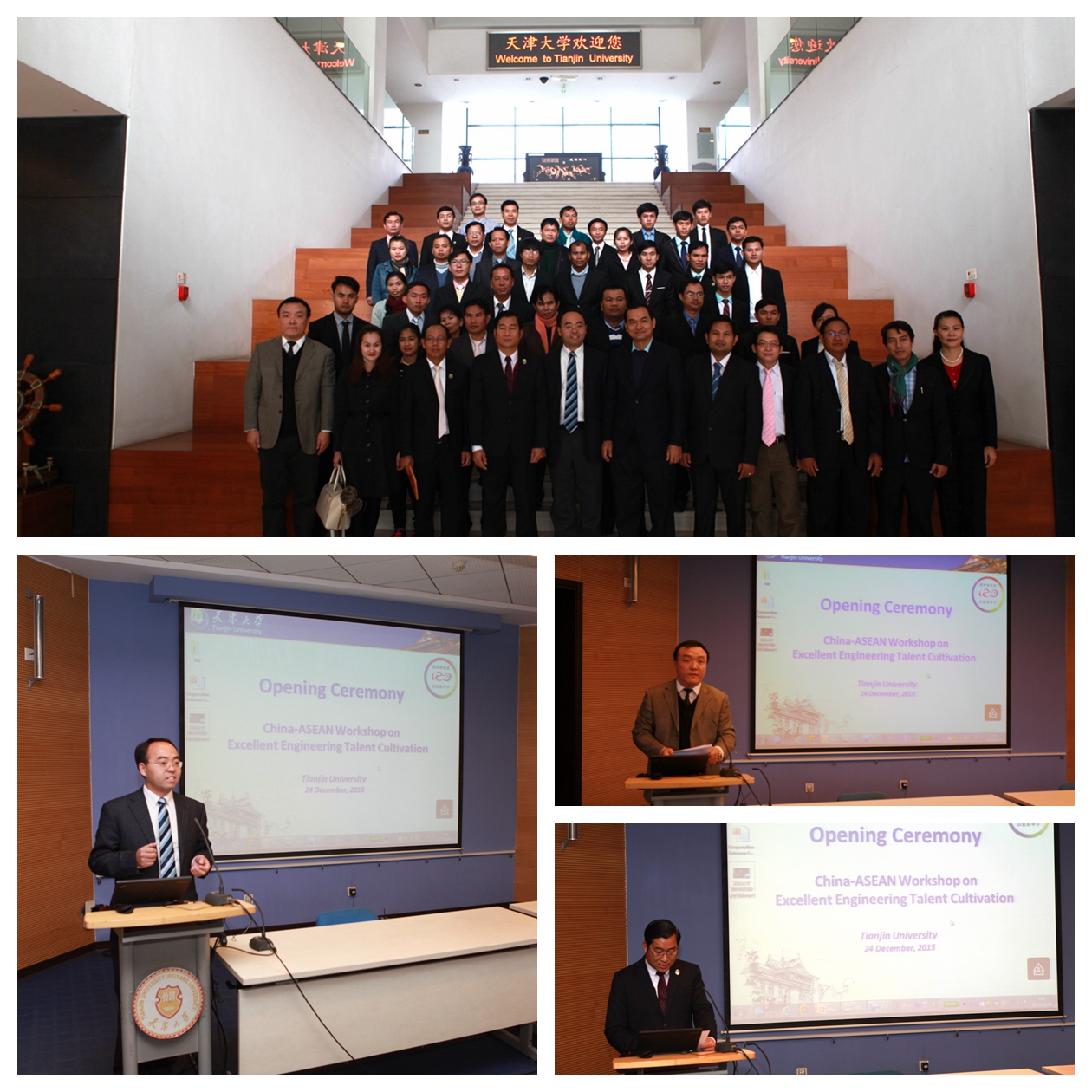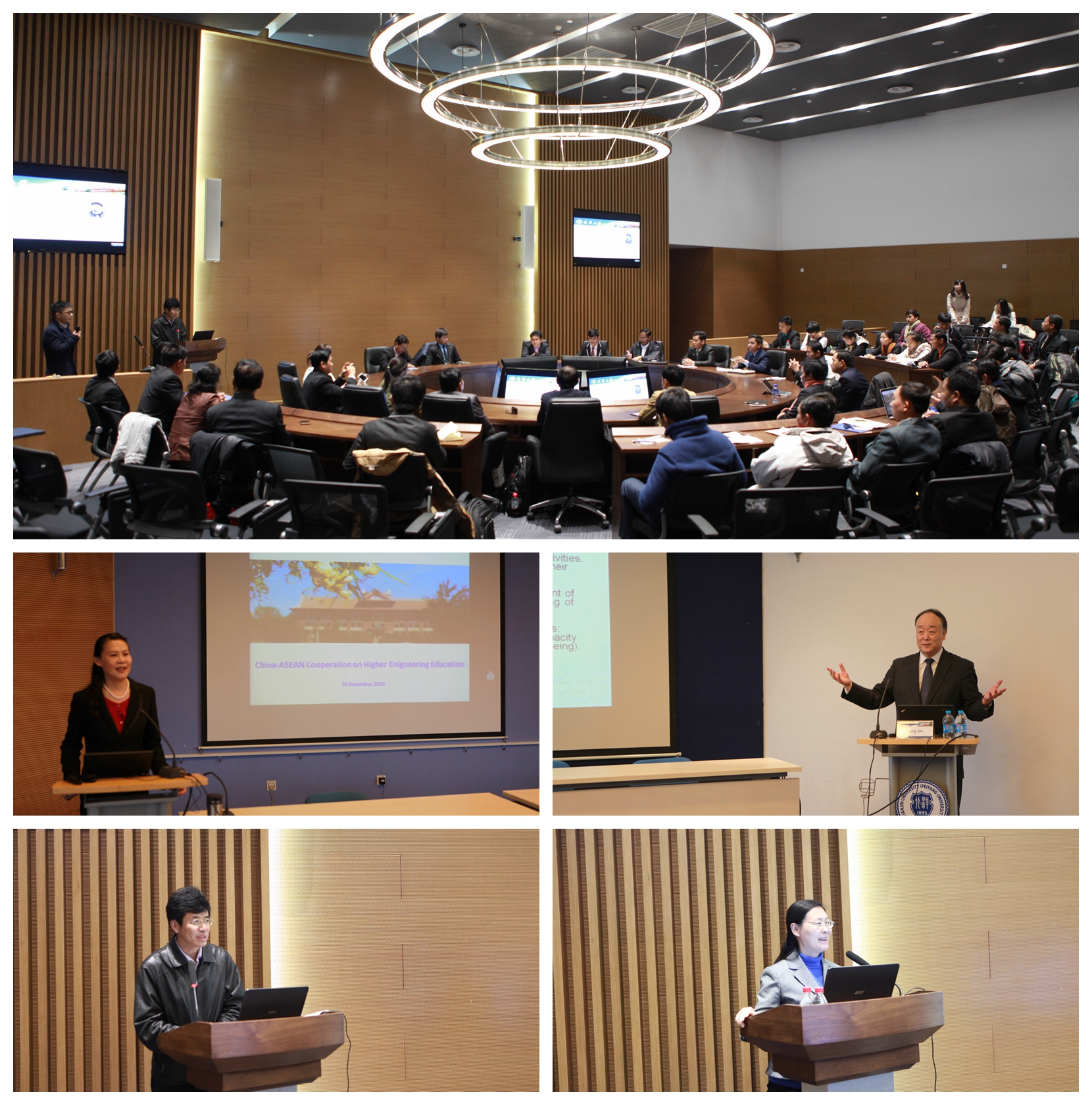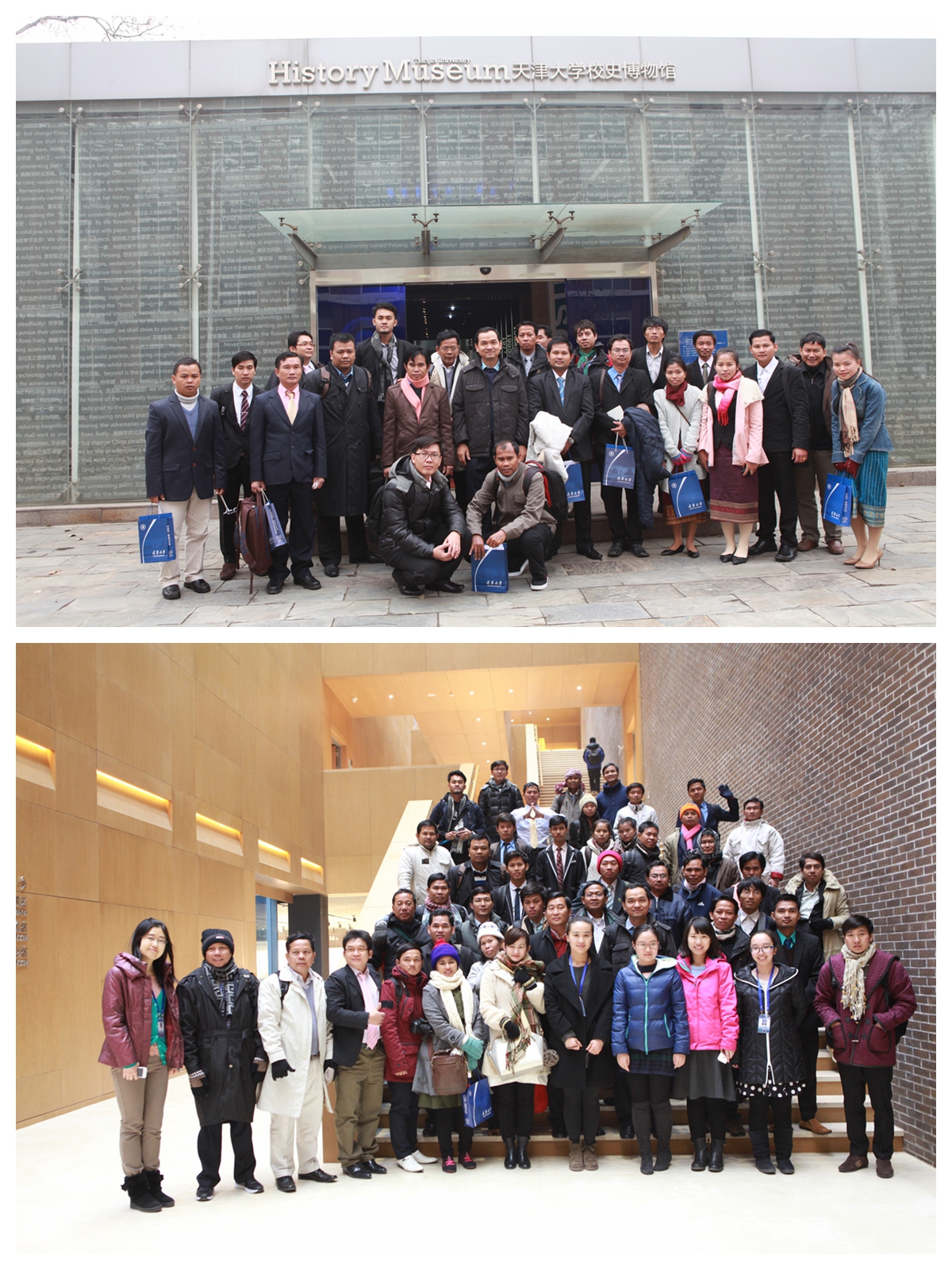October 23th- 27th, 2015, China-ASEAN Workshop on Excellent Engineering Talent Cultivation was successfully held in Tianjin University (TJU). 44 participants including presidents, administrative and teaching faculty from ASEAN universities attended the event. The Workshop has been incorporated into “2015 Regional Cooperation Special Fund Projects in Asia”, with the aim of enforcing the “Diamond Decade” strategic partnership between China and ASEAN countries.

October 23 marked the official unveiling of the Workshop. Apart from the trainees, Assistant President Prof. Hu Wenping, Prof. Yang Fuling, Director of Office of International Cooperation and Prof. Mi Jing, Deputy Dean of School of Education were also present at the opening ceremony.
The ceremony was kicked off with an English video of TJU introduction. Afterwards, on behalf of TJU, Prof. Hu delivered a welcome speech and briefed on the University’s history. He pointed out that TJU attached great importance to the cooperation with ASEAN universities and made great endeavor in establishing ACNET-EngTech. As the first training program between Chinese and ASEAN universities, the event would be of profound significance to enhance cooperation in cultivating engineering talents for both sides.
In his speech, Prof. Mi emphasized that both sides could learn from each other to promote the development of both Chinese and ASEAN higher engineering education. Then Mr. Sam Nga, Rector of Meanchey University, delivered a speech on behalf of all the trainees. He thanked TJU for holding the program and providing an invaluable opportunity for ASEAN teachers to exchange ideas.

After the ceremony, Prof. Yang gave the first report on the China-ASEAN Cooperation on Higher Engineering Education. Based on the geographical and historical relationship between China and ASEAN countries, she reviewed the cooperation in areas of economy, education and culture in the past two decades and briefed on the “Belt and Road” initiative and its significance to China-ASEAN educational cooperation. Prof. Yang also introduced the ACNET-EngTech and its achievements in 2015, expecting more student mobility, faculty exchange and scientific research in the future. She emphasized that the development of China would provide more opportunities for ASEAN neighbors and the exchanges between high education institutions would further promote long-term cooperation and talent cultivation.
In the afternoon, Prof. Yang Jin, Director of Central Institute for Vocational and Technical Education, reported on the Nature of Learning and the Quality of TVET in a Lifelong Learning Perspective. From an academic perspective, he analyzed the significance of lifelong learning through elaborating on the relationship between education and learning, centrality of learners, development of higher order thinking skills and feature of a modern TVET system in China.
On October 24, Prof. Luo Zhen, Deputy Director of Qiushi Honors College, Prof. Zhao Meirong, Deputy Dean of Graduate School and Ms. Shen Yan, discussed with the trainees on the Outstanding Engineer Training and the Exploration and Practice of Innovative Graduate Education of TJU.
Prof. Luo illustrated the status quo and objectives of TJU’s engineering education and outstanding engineer cultivation of Qiushi Honors College. With examples, he pointed out that the university has cultivated a great number of engineering talents, making great contribution to the country’s economic development. Then Prof. Luo introduced the concept, standard and system of Qiushi Honors College in cultivating innovative talents. He expected that a long-term partnership could be built between Chinese and ASEAN universities.
Prof. Zhao and Ms. Shen introduced “3Is” (Internationalization, Interdisciplinarity and Innovation) and “4Cs” (Classification, Capability, Collaboration and Connotation) graduation education system of the university and emphasized on the innovation of Phd engineering cultivation and practice training center. By taking Weichai Power Practive Training Center as an example, they elaborated on the training modules, objectives and outcomes.

In addition, ASEAN representatives visited the History Museum, new library and Xuanhuai Square.
Through the event, the participants expressed that they all benefited a lot from the reports, expecting to enhance cooperation with TJU and other leading engineering universities in China.